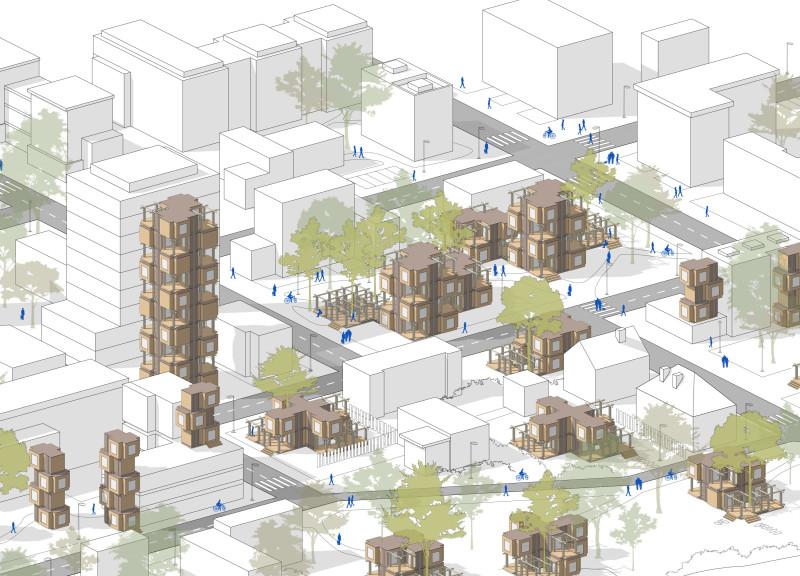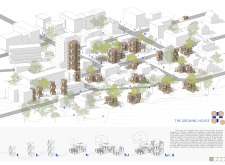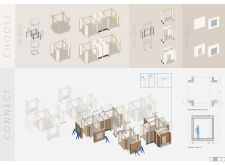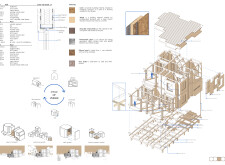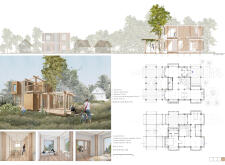5 key facts about this project
Modularity and Flexibility
The central theme of "The Growing House" is its modular design, which allows for easy expansion or reduction of living spaces. This adaptability caters to the evolving nature of urban households, where family sizes and needs may change over time. The residences are constructed from prefabricated components that can be assembled in different configurations. This design approach not only supports efficient construction practices but also reduces waste and minimizes the carbon footprint associated with traditional building methods.
Sustainability is prioritized through the selection of materials. The project employs cork for insulation, sustainable wood for primary structural components, and recycled metal sheeting for durability, all contributing to an eco-conscious design. The integration of photovoltaic glass enhances energy efficiency by facilitating solar energy collection, further supporting the project's sustainability goals.
Community and Social Interaction
Another key aspect of "The Growing House" is its focus on fostering community interactions. The design incorporates communal spaces and accessible pathways that encourage social engagement among residents. By strategically placing green areas and community gardens, the project creates a sense of belonging and promotes a healthy, active lifestyle. This feature differentiates "The Growing House" from conventional housing developments, which often prioritize individual units over community connection.
The layout carefully considers site orientation and environmental factors, optimizing natural light and ventilation. By integrating indoor and outdoor living areas, residents achieve a seamless transition between their homes and the surrounding environment.
The Growing House offers a thoughtful architectural response to contemporary housing challenges, blending flexibility with sustainability. For more technical details, including architectural plans, sections, and designs, exploring the full project presentation can provide deeper insights into its innovative ideas and execution. Encourage further engagement to fully appreciate the intricacies and potential of this residential design.


